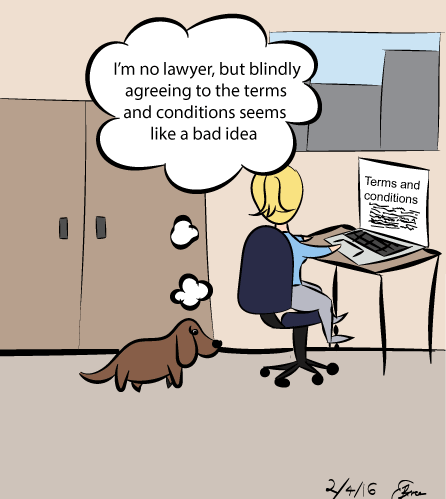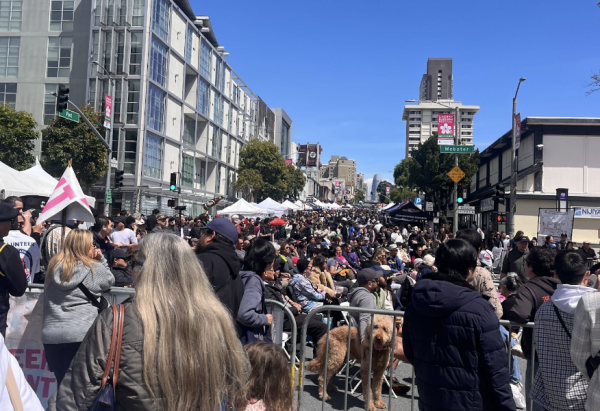Protecting privacy online
Users may be agreeing to more than they initially think.
February 4, 2016
Technology users routinely agree to a website’s or app’s terms and conditions, but they may never figure out that their agreement is anything but “no strings attached.”
“Apps provide great conveniences,” Internet and privacy lawyer Anne McKenna said, “but we often unwittingly consent to disclosures to all of our electronic activity by agreeing to the terms of use and privacy policy.”
No more than 8 percent of social media and application users are expected to fully read the terms and conditions of a service, according to Measuring Usability, a quantitative research firm focusing on human behavior — leaving a full 92 percent of users unsure of what they are exactly agreeing to.
The United States has not passed any federal legislation in terms of electronic privacy since the 1986 Electronic Communications Privacy Act, known as ECPA, allowing the government to obtain access to digital communications with a subpoena once the items are 180 days old.
“The law hasn’t kept abreast to what the technology can do,” McKenna said. “We have these antiquated contract laws that state when somebody agrees to something then they’ve consented to it and so there’s not really recourse.”
Sixty-eight percent of Internet users believe current laws are not good enough in protecting people’s privacy online, according to the Pew Internet & American Life Project.
Users can be more aware of relinquishing online privacy rights by reading the basic provisions of an Internet company’s privacy policy before tapping “I agree.”
“Minor benefits of an app could grant the app access to nearly all your data,” McKenna said. “Reading the basic provisions of the privacy policy will let you know if it’s worth it or not.”
Becoming aware of an app’s privacy policy can prevent an unknown breach of privacy such as location tracking.
“All of us using smartphones are basically walking around with tracking devices on us because all of our smartphones use GPS enabled location tracking technology,” McKenna said. “That means that at all times that particular mobile phone and its exact location can be tracked.”
Not everyone is comfortable with this idea.
“It can sometimes be seen as creepy because I don’t need companies always knowing exactly where I am,” junior Logan Evans said. “They can easily try to use that against you, which isn’t all that safe.”
Blithely checking the box on agreeing to a privacy policy or nonchalantly giving permission to share location with an app is not the only privacy breaches that web users may face.
“Sometimes I go on a website then I go on YouTube, and while I’m waiting I see a little banner on the side showing something from the site I just went to,” Evans said. “I really didn’t know it was tracking where I’d want to go.”
Evans was experiencing the work of cookies, packets of data sent by an Internet server to a browser used to identify a user or track her access to the server, leading to stored user profiles and marketing insights.
“The question is are we going to just allow the wholesale collection of our data to be stored and bought and sold everyday,” McKenna said, “or are we going to have a system of legislation that really addresses this.”



















